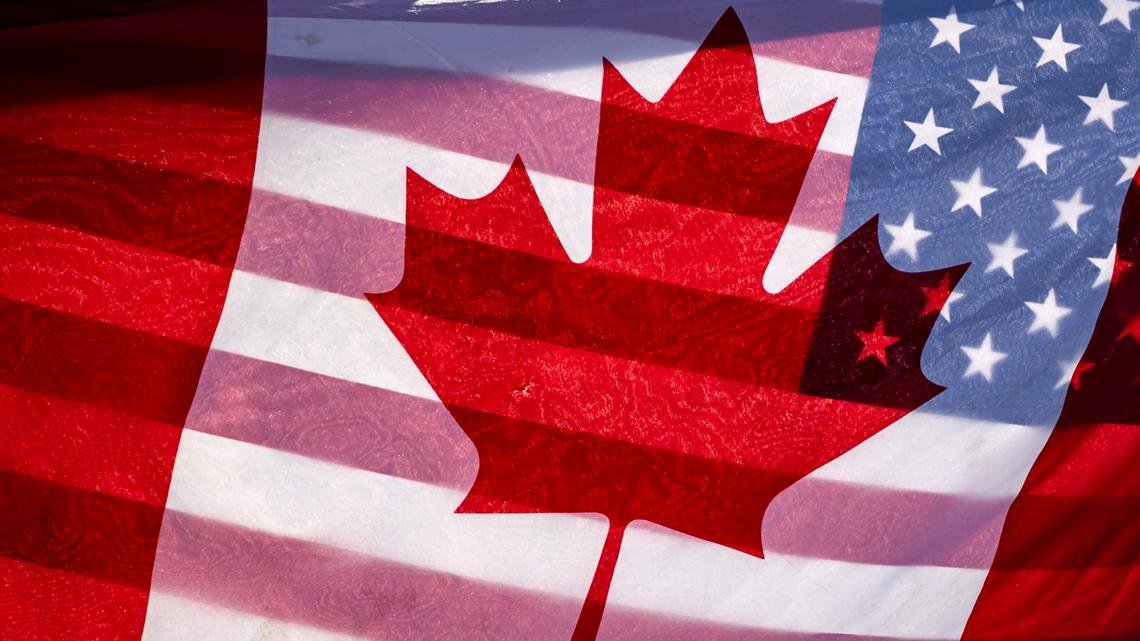Business
US Tariffs Ignite Trade War: Mexico, Canada, and China Fire Back with Counter Tariffs

Global markets are reacting as President Donald Trump’s tariffs against Canada and Mexico officially took effect Tuesday. This move escalates what many are calling a trade war, leading to significant anxiety among international investors.
Effective immediately, imports from Canada and Mexico now face a 25% tax, and Canadian energy products are subjected to a 10% tariff. China has also responded to earlier U.S. tariffs by increasing its own taxes on American agricultural exports
In a swift retort, Canadian Prime Minister Justin Trudeau announced that Canada would impose tariffs on over $100 billion worth of U.S. products within 21 days. Similarly, Mexican President Claudia Sheinbaum indicated that Mexico would retaliate with its own tariffs, details of which are expected at a forthcoming public event.
Trump’s administration originally decided to push back the implementation of these tariffs to allow for negotiations, but ultimately the pressure to act has resulted in immediate consequences. The man in charge has touted these tariffs as a major tool for economic success, despite warnings from economists about potential inflation and instability.
“It’s a very powerful weapon that politicians haven’t used,” Trump asserted while defending his administration’s strategy. His unwavering commitment to these tariffs has spooked U.S. markets, showing sharp declines after he stated that negotiations were off the table.
The origins of these tariffs stem from issues surrounding drug trafficking and immigration, according to Trump’s claims, though Canada and Mexico argue that progress has been made on these fronts. The future of these tariffs remains uncertain, with potential for further expansion to other trading partners, including the European Union and India.
Michael House, an international trade attorney, described the current situation as chaotic and unpredictable, emphasizing the volatility injected into global economic dynamics. Various lawmaker reactions also indicate a growing concern; both Democratic and even some Republican voices have raised alarms about the potential fallout.
Senator Susan Collins expressed specific anxiety over the impact on Maine’s economy given its connectivity to Canada, illustrating the interconnectedness of local economies across the North American landscape. In Ottawa, Canadian officials are preparing for an extended effort to mitigate the fallout while continuing dialogues with their U.S. counterparts.
Amidst these tensions, key discussion points involve U.S. fentanyl seizures and their connections to foreign entities, which the White House aims to address. As other countries prepare their own retaliatory measures, experts like Damon Pike believe the situation may only escalate in intensity.
On local levels, provincial leaders, such as Nova Scotia’s Tim Houston, are strategizing their own responses, including removing U.S. alcohol from shelves and imposing stricter regulations on American commerce. This escalating back-and-forth raises questions about the long-term impacts on trade relationships.
While the Trump administration believes these tariffs might encourage domestic manufacturing, industry leaders express skepticism. Greg Ahearn from The Toy Association highlighted the challenges of replicating intricate manufacturing processes that have long been established in supply chains across China.
As the ramifications of these tariffs continue to unfold, the global economy is left in a state of uncertainty, waiting to see how these trade dynamics will evolve.


















